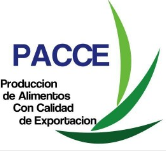In today’s dynamic world, agreements play a crucial role in various aspects of our lives. Whether it’s a business deal, a legal settlement, or a simple understanding between friends, agreements help define the terms and conditions that govern our interactions. Let’s dive into some key concepts and differences related to different types of agreements.
The Difference Between a Promise and an Agreement
Before delving into specific types of agreements, it’s essential to understand the fundamental difference between a promise and an agreement. While they may seem similar, there are subtle nuances that set them apart.
A promise is a commitment made by one party to another, typically indicating an intention to carry out a certain action or fulfill a specific obligation. On the other hand, an agreement is a mutual understanding between two or more parties, where they come to a consensus on a particular matter or set of conditions. The key distinction lies in the level of formality and the presence of mutual consent.
Contractual Agreements
When it comes to legal agreements, contracts are the primary mechanism used to formalize obligations and protect the interests of the involved parties. A breach of contract can have severe consequences, and it’s crucial to establish clear terms and conditions to minimize potential disputes.
A verbal agreement can still be legally binding, although they are inherently more challenging to enforce due to the lack of written evidence. However, written contracts provide a higher level of certainty and protection, as they offer tangible proof of the agreed-upon terms.
Specialized Agreements for Specific Scenarios
Depending on the situation, there are various specialized agreements that cater to specific needs. For instance:
- A unified communications enterprise agreement helps organizations streamline their communication systems by consolidating various channels into a single platform.
- A forward contract and a futures contract are both financial agreements; however, they differ in terms of how and when they are executed.
- A draft agreement for manpower supply outlines the terms and conditions for hiring temporary workers from an external agency.
- A sample roommate agreement provides a framework for individuals sharing living spaces, ensuring clarity regarding responsibilities and expectations.
International Agreements and Resolutions
On a global scale, countries often enter into CCS agreements (Carbon Capture and Storage) to address climate change challenges by reducing greenhouse gas emissions and exploring sustainable energy sources.
Additionally, international disputes are often resolved through arbitration, a mechanism that relies on an arbitration agreement to ensure the enforceability and separability of the arbitration clause from the main contract.
Conclusion
Agreements are the foundation of our interactions and transactions, providing a framework that outlines rights, obligations, and expectations. Whether it’s a promise between friends or a complex contract between businesses, understanding the intricacies of agreements is crucial for maintaining harmonious relationships and minimizing potential disputes.
 orcid.org/0000-0001-6003-7487
orcid.org/0000-0001-6003-7487







 - ULA
- ULA Guia de Alta Montaña
Guia de Alta Montaña Industrial Chemistry – Texas A&M
Industrial Chemistry – Texas A&M Laboratorio FIRP
Laboratorio FIRP Materials Learning – Cambridge Univ.
Materials Learning – Cambridge Univ. Petroleum Refining – Colorado Univ.
Petroleum Refining – Colorado Univ. COLMEQUIM
COLMEQUIM BIOVEN
BIOVEN CARPA
CARPA GUMMYN
GUMMYN PACCE
PACCE PharmaQuim
PharmaQuim PRODELIM
PRODELIM WATERFRESH
WATERFRESH ALITOS
ALITOS Biocosmetiq's
Biocosmetiq's E.B.T. Bebidas y Licores
E.B.T. Bebidas y Licores GELES BETA C.A
GELES BETA C.A NatuVie
NatuVie Productos de Gel de Aloe Vera
Productos de Gel de Aloe Vera Determer
Determer PECTIPRODS Mérida
PECTIPRODS Mérida PETROING C.A.
PETROING C.A. Soft&Pure
Soft&Pure ALQUIVEN C.A.
ALQUIVEN C.A. Deshoil C.A.
Deshoil C.A. Ecopetroliq’s
Ecopetroliq’s Pequinoil S.A
Pequinoil S.A PetroCrack CA
PetroCrack CA Petrol C.A.
Petrol C.A. REFILUB
REFILUB